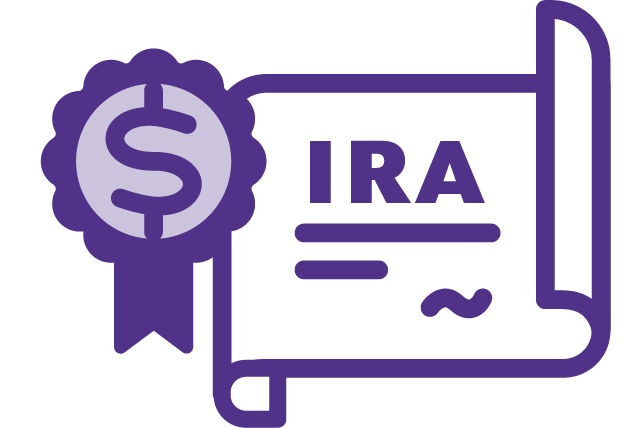Introduction
What are the Tax Treatments of Roth IRA Distributions? Numerous banks and other financial organisations provide a retirement plan known as an individual retirement account (IRA). Some of these accounts have much better tax benefits for retirement savings than others. There are a few distinct varieties of individual retirement accounts (IRAs), with slightly varying regulations applying to each: the standard IRA, the Roth IRA, the SEP IRA, and the SIMPLE IRA.
In addition to or as an alternative to an employer-sponsored retirement plan, a Roth individual retirement account (Roth IRA) provides a tax-advantaged avenue to save for retirement. The contributions to a Roth IRA are not tax deductible, but the withdrawals of the funds from the account are tax-free under certain circumstances. Contributions made by savers can be cashed out without incurring any taxes. Withdrawing funds from a Roth IRA before turning 5912 years old may incur taxes under certain circumstances.
Types of IRAs

Many people's minds automatically go to a standard IRA when they hear the term. With few exceptions, donations to a traditional IRA are generally tax-deductible. With a Roth IRA, donations aren't tax deductible, but withdrawals made after retirement aren't taxed either. Distributions from a typical IRA are considered taxable income, notwithstanding the tax benefits they provide. Employers contribute to their employees' SIMPLE IRAs on their behalf. Employee contributions are made before taxes are taken off. It's possible to reduce your taxable income by $25 per week if you earn $1,000 and put $25 into a SIMPLE IRA. Such withdrawals from retirement funds are subject to taxation. Self-employed people can take advantage of a retirement savings plan known as a Simplified Employee Pension, or SEP IRA.
To Elaborate on Eligible Withdrawal
Withdrawals from a Roth IRA are not penalised, and contributions are not taxed. Taxes that are owed on the converted amount may be subject to early distribution penalties. Withdrawals from accounts that don't qualify for special tax treatment are subject to income tax and perhaps a 10% early withdrawal penalty. Sort out the tax-free and penalty-free payouts. A distribution must qualify if it does both of the following:
Five years must have passed since the Roth IRA was first opened and funded. There is a minimum withdrawal age of 59 1/2 for a Roth IRA. The recipient of a payout from a Roth IRA is prohibited from working. The money from a Roth IRA is given to the designated beneficiary upon the owner's passing. The distribution can be used by first-time homebuyers, such as the Roth IRA owner or a member of their immediate family, to cover expenses like the down payment or closing costs. A maximum of $10,000 will be awarded throughout a person's life. Members of the Roth owner's and their spouse's immediate family, including the Roth owners and their spouse's children, grandchildren, parents, and other ancestors, are eligible to receive distributions from the Roth account.
Tax Treatment of Distributions That Do Not Meet the Qualification Test

The tax treatment of withdrawals from a Roth IRA that aren't qualified depends on the source of the cash. In general, a Roth IRA can be funded in four different ways. Participant's regular contributions and basis rollovers from qualified Roth IRAs. Assets from traditional IRAs, SEP IRAs, SIMPLE IRAs, and employment plans like 403(b) and government 457(b) are rolled over or converted to a Roth IRA, where they are taxed at the lower post-tax rate. Funds are taxable when converted to a Roth IRA.
A Roth IRA is a retirement account into which pre-tax contributions from an employer-sponsored retirement plan (like a 401(k) or 403(b)) can be transferred after taxation has already been paid. You can keep more of your retirement savings without worrying about paying taxes on them by transferring them to a Roth IRA. All Roth IRA gains and any distribution of non-qualified money from a Roth IRA are transferable. Contributions to a Roth IRA are always treated as withdrawals made first under regulations governing the order of withdrawals. Any earnings or Roth conversion amounts are not considered distributed until all contributions, and subsequent conversion amounts have been distributed.
Assets in a Roth IRA, including regular participant contributions and tax-free conversions from conventional IRAs, can be withdrawn anytime without tax or penalty. A non-qualified distribution of taxable traditional IRA conversion assets may incur early penalties. Any distribution of profits that are not qualified may be subject to income tax and the early distribution penalty. Below is an illustration of when a non-qualified distribution triggers the need to pay taxes and the early distribution penalty.
Conclusion
Each Roth conversion from an IRA is treated as a separate transaction, and its five-year period is determined accordingly. There is only ever one five-year period used for determining distribution eligibility. Overcontributions to a Roth IRA withdrawal after five years do not count toward the required minimum distribution amount. The person receiving a distribution from a Roth IRA is responsible for determining whether or not taxes or penalties will be due. All Roth IRA owners must keep detailed records of all contributions, withdrawals, and other account activity and file all necessary tax returns to the IRS by the deadlines established by the IRS.



